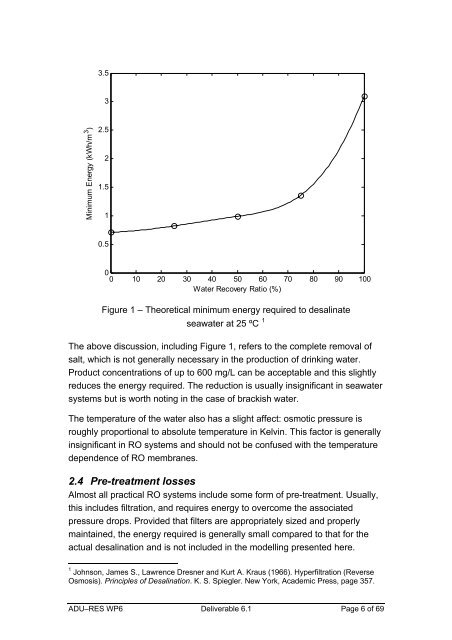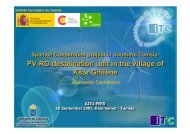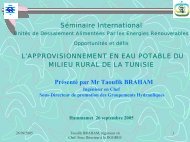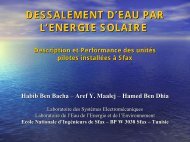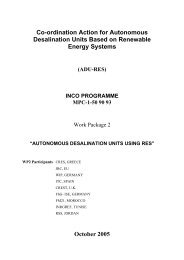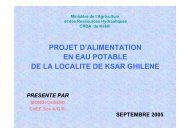Energy consumption modelling - ADU-RES
Energy consumption modelling - ADU-RES
Energy consumption modelling - ADU-RES
You also want an ePaper? Increase the reach of your titles
YUMPU automatically turns print PDFs into web optimized ePapers that Google loves.
Minimum <strong>Energy</strong> (kWh/m 3 )<br />
3.5<br />
3<br />
2.5<br />
2<br />
1.5<br />
1<br />
0.5<br />
0<br />
0 10 20 30 40 50 60 70 80 90 100<br />
Water Recovery Ratio (%)<br />
Figure 1 – Theoretical minimum energy required to desalinate<br />
seawater at 25 ºC 1<br />
The above discussion, including Figure 1, refers to the complete removal of<br />
salt, which is not generally necessary in the production of drinking water.<br />
Product concentrations of up to 600 mg/L can be acceptable and this slightly<br />
reduces the energy required. The reduction is usually insignificant in seawater<br />
systems but is worth noting in the case of brackish water.<br />
The temperature of the water also has a slight affect: osmotic pressure is<br />
roughly proportional to absolute temperature in Kelvin. This factor is generally<br />
insignificant in RO systems and should not be confused with the temperature<br />
dependence of RO membranes.<br />
2.4 Pre-treatment losses<br />
Almost all practical RO systems include some form of pre-treatment. Usually,<br />
this includes filtration, and requires energy to overcome the associated<br />
pressure drops. Provided that filters are appropriately sized and properly<br />
maintained, the energy required is generally small compared to that for the<br />
actual desalination and is not included in the <strong>modelling</strong> presented here.<br />
1 Johnson, James S., Lawrence Dresner and Kurt A. Kraus (1966). Hyperfiltration (Reverse<br />
Osmosis). Principles of Desalination. K. S. Spiegler. New York, Academic Press, page 357.<br />
<strong>ADU</strong>–<strong>RES</strong> WP6 Deliverable 6.1 Page 6 of 69


